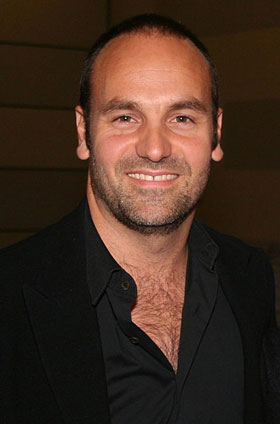
Internet billionaire and Ubuntu Linux founder Mark Shuttleworth is engaged in a high-profile court battle with the South African Reserve Bank in an effort to have the country’s exchange control system declared unconstitutional.
Sapa reported on Tuesday that Shuttleworth blames the existing system of exchange control for forcing him to emigrate from South Africa in 2001.
The newswire said he also wants the Reserve Bank to set aside a levy of more than R250m he had to pay to get some of his assets out of the country in 2009, and order the Reserve Bank to return the money.
TechCentral asked Shuttleworth in an interview conducted over e-mail to explain in detail the motivation for his decision to challenge the matter in court and what he hopes it will achieve.
TechCentral: Why exactly did you decide to pursue this case?
Mark Shuttleworth: Exchange controls prejudice small businesses and individuals, preventing South African citizens and residents from managing their finances in a global economy, without providing the state with meaningful control over the value of the rand.
They are a remnant of apartheid-era concerns about capital flight that pre-date globalisation, created at a time when government did not reflect the broader interests of society.
Successful economies today recognise the value of cross-border integration; they encourage trade, while building domestic strength in particular sectors. Modern small businesses need to be global from the start — drawing on talent and resources wherever they are best available, in order to serve a global customer base.
Exchange controls put South African entrepreneurs at a significant disadvantage to their counterparts in all western economies. This is particularly acute in the technology sector, but the inefficiencies of exchange controls present real costs to all residents, including the weakest and most vulnerable parts of society.
A World Bank study found the cost of remitting small amounts of money between South Africa and its neighbours was exploitatively high — a direct result of a regulatory regime built on exchange controls that adds bureaucracy and restricts competition between banks. For migrant workers, a cornerstone of the sub-Saharan economy, exchange controls are a heavy and unnecessary burden.
The process mandated by the Reserve Bank and implemented largely by banks is “nameless and faceless”, raises the cost of doing cross-border business for everyone, and makes for a capricious business environment where “who you know” provides more certainty than what you propose to do.
Inefficiencies in the domestic rand market create bank profits, aligning the interests of industry and government against those of businesses and individuals.
After I questioned this regime, the Reserve Bank took the step of removing exchange controls for emigrants and asked me to drop the case. However, the goal of this application to the court is to establish the rights of South African entrepreneurs not to have to emigrate in order to work on a global basis. The case seeks to ensure that South Africans can stay resident in South Africa and retain freedom of investment globally, subject to appropriate regulatory supervision in line with common practice elsewhere.
It is a great loss for South Africa to encourage people to emigrate rather than allowing them to build global operations from small beginnings at home, as other countries now do.
Exchange controls used to be common until the 1980s, when western economies dismantled them in favour of regulated globalisation. The rest of the world followed.
Today, most economies have created regulatory environments that address concerns about money laundering, the financing of illegal operations, and tax, without fundamental restrictions on investors or business operations. South Africa has successfully modernised many aspects of its financial policy and regulations — and moved to a global tax view — that would support the elimination of exchange controls.
Any proceeds from the case will go towards future constitutional defence actions
Unjust authority is rarely relinquished unless challenged, and the case seeks to do just that, challenging the validity of exchange control mechanisms and seeking a rewrite of the regulatory framework to meet legitimate state needs for surveillance, tax and security compliance in a modern form.
Authorities have said that exchange controls provide a buffer against capricious global market forces. That is false. The South African rand is heavily traded internationally as a proxy for emerging market currencies that are less liquid. As a result, the rand is already as volatile as it would be without exchange controls. People outside South Africa can trade the rand easily — the only actual impact of exchange controls is to prevent South African residents from participating in that market.
Similarly, South Africa’s relative resilience during the global banking crisis has more to do with effective regulation of bank lending, mortgage regulation, and capital adequacy than exchange controls.
Globalisation certainly created new risks and challenges for regulators and policymakers. But the answer is not to retreat behind ineffective tools from the 1960s. We cannot turn back the clock on globalisation, even as we seek to shape it into a more manageable form.
State authorities can meet their duty of care and stewardship of the financial sector without exchange controls.
I emigrated in frustration with Reserve Bank opacity and inefficiency, in order to pursue entrepreneurship and philanthropy in the technology arena, globally.
While the scale of my interests is unusual, the core story of building new businesses from small beginnings around ideas is at the centre of modern technology entrepreneurship.
Today, such businesses are increasingly dependent on their ability to bring together small teams that span the globe. While current regulations do not impact on me, as an emigrant, the case seeks to establish the same rights for those who cannot or won’t emigrate.
Any proceeds from the case will go towards future constitutional defence actions, providing a fund to support cases where government actions appear to step outside their constitutional mandate, providing in one sense balance to the asymmetric resource relationship between the state and its citizens in disputes of a constitutional nature.
TechCentral: What attempts beforehand had there been to reach a settlement or agreement of some kind with the Reserve Bank?
Shuttleworth: This case is the result of a very long-standing series of interactions with the Reserve Bank, over the course of which I became convinced that the mechanisms of exchange control are ineffective at maintaining predictable rand exchange rates, and in supporting the needs of small businesses that span borders.
Before taking the step of emigrating, I had many interactions with the Reserve Bank and its authorised dealers, focused on projects that spanned multiple countries in Africa and more globally. Even when those projects were directly in line with stated policy — encouraging South African investment in Africa, for example — the process was unpredictable and capricious. Essentially, it relies on the Reserve Bank to take investment decisions.
I am convinced that the current system is perpetuated long past its sell-by date, mainly because nobody has questioned, forcefully, its justification
Perhaps in the 1960s, when a cross-border investment was a major undertaking that would generate years of analysis and piles of documentation, that made sense. Today, when multinational operations are normal, even for small businesses, it makes no sense at all. Eventually, it became clear that the only way to operate with relative ease across borders was to move out of South Africa, a rather painful choice.
I became aware of the existence of a constitution argument against the regulatory regime several years ago, that had been prepared by leading constitutional lawyers, and agreed to stand as the plaintiff in this case. Before bringing the case, we raised these questions with the Reserve Bank, which quickly dropped exchange controls for non-residents and asked us to drop the case. But this case is about allowing people not to emigrate, while still building investments and businesses. One should not have to leave the country of your birth, or your adopted home, in order to work in a modern fashion.
TechCentral: I imagine the South African government is worried about a massive outflow of money — and a potential run on the currency — if the controls are removed. Is this fear justified in your view?
Shuttleworth: There are two key economic issues: the value of the rand, and the flow of capital.
Today, the rand is a very volatile currency, precisely because everybody other than South African residents can trade freely in it. And they do — the rand has often been the world’s most heavily traded emerging market currency, precisely because it is used by global markets as a proxy for the broader category.

Such trading on the currency purely for speculative purposes, as a hedge or a market position, is the most volatile trading because it is not related to real underlying investments. By contrast, allowing a South African to buy a real business somewhere in the world, or setup a real office somewhere in the world, is not going to drive volatility, because those decisions are taken carefully and slowly by investors using their own money.
So, from a volatility perspective, the rand is as vulnerable today as it ever could be. Exchange controls don’t stop wild swings in the value of the rand, they just stop South African residents from participating easily in global business at a small scale.
As for the flow of capital, it’s reasonable to expect bi-directional flows in a globalised economy. The question is what South Africa does to attract inflows that drive real economic growth and job creation (as opposed to purely financial trade in the rand). Restricting the personal choices of South Africans, and subjecting them to a process which is inscrutable, does little to address the flow of capital either way. As a matter of principle, if somebody does wish to leave, that is a difficult choice which it is only fair to allow them to make. More pragmatically, it’s important for South Africa to be a place to which emigrants wish to return, and ensuring their freedom to move is a good way to assure them of the value of returning.
TechCentral: How have exchange controls affected you directly in terms of both your ability to move money around and invest it and your decision to live in the UK rather than South Africa?
Shuttleworth: If a South African resident wishes to setup a project like Ubuntu, or invest in a fund that targets Africa, as I have done, you need to apply to the Reserve Bank. But the Reserve Bank will not deal with you directly; you have to apply to its authorised dealer. In each case, you have no ability to predict a result. Timelines, which are notionally assured by legislation and regulation, are entirely unpredictable. If you happen to be fortunate and well known or well connected, someone from the Reserve Bank will probably engage with you, but that is not a transparent or fair process to everyday residents.
The folks who manage this process at the Reserve Bank mean well. However, they are effectively setup to fail: they are called on to make investment decisions (“Should we let this person invest in that opportunity?”) in a range of fields for which they have no realistic basis for making a decision.
Nobody else should have to make the same choice: stay in South Africa and limit the scope of your entrepreneurship to South Africa, or move away and be able to build modern, connected operations
These regulations limit the scope of cross-border investment to very slow, very predictable, or very connected projects. That is a waste, and increasingly so as the world gets smaller and faster.
The end result of such an opaque market is a great deal of inefficiency. If you look into World Bank analysis of cross-border remittance (sending portions of wages back across borders), you’ll see what a shockingly high cost is paid by migrant workers sending money to Lesotho or Zimbabwe. Migrant work and remittances are a significant part of the economy of sub-Saharan Africa. The inefficiency of these markets suits currency dealers — banks — very nicely, because it raises the profitability of currency dealing. Sending money from South Africa to Lesotho is dramatically more expensive than, say, from the US to Mexico, or UK to Poland, which are similar axes of migrant work. That expense is revenue to the banks and a drag on the most vulnerable members of society.
TechCentral: Are you fighting this because you want to move back to South Africa? Or are you fighting it more out of principle?
Shuttleworth: I do miss living in South Africa and would consider making it my home again if I felt I could pursue my interests effectively, and this is one aspect of that. It was particularly painful to leave, but in a sense, I’ve established a life elsewhere.
Regardless, though, this is a case that stands on its merits. It is a shadowy regulatory process on which some light is long overdue. And nobody else should have to make the same choice: stay in South Africa and limit the scope of your entrepreneurship to South Africa, or move away and be able to build modern, connected operations. Not only is it something I would argue is a right for that individual, I would argue it’s in the interests of the country to allow global thinkers to stay local.
TechCentral: Do you believe you have a strong case for proving that exchange control regulations are unconstitutional? On what basis?
Shuttleworth: Yes, the case focuses on due process and accountability, where current mechanisms of currency regulation fail to meet constitutional standards.
I am a proponent of effective regulation. We do need regulation — to ensure competition, compliance, transparency and to reduce fraud and illegal activity associated with money laundering. But the vast majority of countries achieve that with reporting requirements that ensure public visibility in the currency markets without putting their central banks — or worse, nameless and faceless agents of those central banks — in the position of making investment decisions on behalf of individuals and businesses.
I am convinced that the current system is perpetuated long past its sell-by date, mainly because nobody has questioned, forcefully, its justification.
There was a brief window in the transition to a democratic South Africa when authorities who had, for various reasons, unjust power, relinquished that power on moral grounds. That window has closed, and I believe it will take active challenges to assure constitutional rights. This case is a reflection of that need.
TechCentral: Depending on the outcome of this judgment, are you prepared to take this battle to the supreme court of appeal and, if necessary, to the constitutional court?
Shuttleworth: This is at heart a constitutional question, so yes. Due process involves asking the high court to judge the facts and weigh the arguments, and I am glad, finally, after several years of wrangling with the Reserve Bank, to be in a position to have those facts heard in public.
- See also: Reserve Bank lays into Shuttleworth and Shuttleworth declares war on exchange control
- Top image: Nitout




